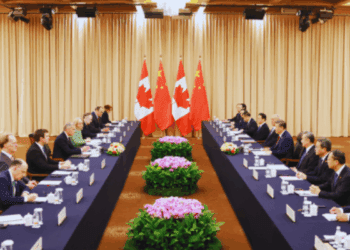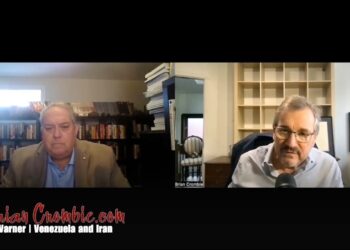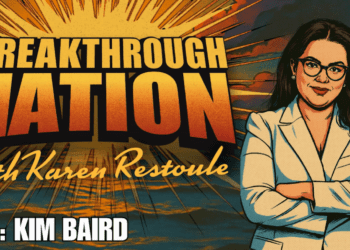If we implemented the MLI recommendation starting with the 105,000 Aboriginal students completing grades 6-12 next year, it would cost about $315 million — nearly the same as the flawed PSSSP. It would take about six years to replace the present PSSSP with this Aboriginal Post-Secondary Savings Account (APSSA), and there would be substantial, if temporary, transition costs. But it would be a mechanism that is accountable, transparent, and fulfills the stated purpose of the present program — making certain students actually get the money.
- Home
- About
- Experts
- Issues
- Projects
- CNAPS (Center for North American Prosperity and Security)
- The Promised Land
- Voices that Inspire: The Macdonald-Laurier Vancouver Speaker Series
- Dragon at the door
- Canada on top of the world
- Letter to a minister
- Justice Report Card
- The Great Energy Crisis
- DisInfoWatch.org
- Managing Indigenous Prosperity
- Judicial Foundations
- Landmark Cases Council
- Defending The Marketplace of Ideas
- Reforming the University
- Past Projects
- Digital Policy & Connectivity
- Double Trouble
- Canada and the Indo-Pacific Initiative
- The Transatlantic Program
- COVID Misery Index
- Speak for Ourselves
- The Eavesdropping Dragon: Huawei
- Talkin’ in the Free World with Mariam Memarsadeghi
- An Intellectual Property Strategy for Canada
- Munk Senior Fellows
- A Mandate for Canada
- Confederation Series
- Fiscal Reform
- The Canadian Century project
- Fixing Canadian health care
- Internal trade
- From a mandate for change
- Size of government in Canada
- Straight Talk
- Labour Market Report
- Leading Economic Indicator
- Centre for Advancing Canada’s Interests Abroad
- Indigenous Prosperity at a Crossroads
- Events
- Latest News
- Libraries
- Donate
- Home
- About
- Experts
- Issues
- Projects
- CNAPS (Center for North American Prosperity and Security)
- The Promised Land
- Voices that Inspire: The Macdonald-Laurier Vancouver Speaker Series
- Dragon at the door
- Canada on top of the world
- Letter to a minister
- Justice Report Card
- The Great Energy Crisis
- DisInfoWatch.org
- Managing Indigenous Prosperity
- Judicial Foundations
- Landmark Cases Council
- Defending The Marketplace of Ideas
- Reforming the University
- Past Projects
- Digital Policy & Connectivity
- Double Trouble
- Canada and the Indo-Pacific Initiative
- The Transatlantic Program
- COVID Misery Index
- Speak for Ourselves
- The Eavesdropping Dragon: Huawei
- Talkin’ in the Free World with Mariam Memarsadeghi
- An Intellectual Property Strategy for Canada
- Munk Senior Fellows
- A Mandate for Canada
- Confederation Series
- Fiscal Reform
- The Canadian Century project
- Fixing Canadian health care
- Internal trade
- From a mandate for change
- Size of government in Canada
- Straight Talk
- Labour Market Report
- Leading Economic Indicator
- Centre for Advancing Canada’s Interests Abroad
- Indigenous Prosperity at a Crossroads
- Events
- Latest News
- Libraries
- Donate
Statement of Support from Jacquelyn Thayer Scott
A
A
Anyone watching the opening show at the recent Vancouver Olympics had to have been impressed by the skill, endurance and pride of those 350+ young Aboriginal dancers from across Canada who welcomed the world’s best athletes to our Pacific shores. For those nearer retirement than our college and university years, it was a moment to be proud these impressive young people — representing their families and Canada so well — would be among those leading Canada into the middle of this century, by which time more than 22 percent of us will be seniors.
So we will be relying upon well-prepared youth for Canada’s future sooner than we think. By 2011 — just next year — and for 40 years thereafter, our population will grow faster than our labour force, as we older folk live longer, but contribute less directly to GDP than when we were full-time workers. Aboriginal population grew by 25 percent between 2001 and 2006, compared to six percent for other Canadians and that trend will continue. We know from our own working lives that education has been the key to prosperity and improved quality of life; that trend shows no sign of abating as the knowledge economy matures. Yet both educational attainment and employment rates for Aboriginals lag woefully. By 2006, only eight percent of Aboriginals had completed a university degree, compared to 23 percent of non-Aboriginals, and the gap is growing. The unemployment rate for Aboriginals aged 25-64 is 63 percent — improving, but still well below the 76 percent for non-Aboriginals. Their unemployment rate in 2006 was three times the Canadian average, exceeding that rate in every region.
This journey from Olympic-opening euphoria to uneasiness lasts only a few short steps; knowledge of just how badly we have provided for the education of young Aboriginals has been with us for decades and did not end when the residential schools closed their doors. Fittingly, the first report issued by the country’s newest national think-tank, the non-partisan MacDonald-Laurier Institute for Public Policy (MLI), tackles the issue head-on. Their report, Free to Learn: Giving Aboriginal Youth Control over Their Post-Secondary Education, authored by Calvin Helin and Dave Snow, makes a simple and elegant leap beyond preceding analyses and discussions.
The MLI document builds on a broad base of data documenting a deplorable state of affairs from (among many others) Statistics Canada, the Educational Policy Institute, the Millennium Scholarship Foundation (MSF), the Centre for the Study of Living Standards, the CD Howe Institute, and the Parliamentary Standing Committee on Aboriginal Affairs. An Expert Panel on Skills of the Prime Minister’s Advisory Council on Science and Technology that I chaired in 2000 accumulated similar data but, like others, our recommendations faltered — stymied by the usual national hand-wringing about whose responsibility it is (or should be) to fix it.
For fix it, we must. Morally, politically and economically, the Post-Secondary Student Support Program (PSSSP) of Indian and Northern Affairs Canada (INAC) not only fails in its coverage but creates unfortunate unintended consequences. Put simply, since 1977 nearly all PSSSP monies — now about $314 million annually — are given as bloc funding to Indian Band Councils to administer. An INAC audit of the program in 2009 found considerable evidence of surplus funds used for ineligible purposes, abuse of expenses, unwarranted waitlisting, rationing for students, regional variations, favoritism and nepotism, with no real performance measurement in place. Equitable coverage for students living off-reserve is much worse. A 2008 MSF study of factors affecting the use of financial assistance by Aboriginal youth found they had a high level of frustration with the abuse and misuse of program funds and the lack of transparency at all levels. Small wonder.
So, all who have looked carefully at needs agree the present support program is broken, and for a long time. There is no consensus about “how” to fix it — more accountability rules, new institutions, or direct federal administration. The MLI paper agrees the federal government is the constitutionally responsible party, but suggests responsibility can more reliably be fulfilled by dealing directly with the Aboriginal student. At birth, $4,000 would be placed in a registered savings account to gather interest, and each year beyond grade 6 that is successfully completed by the student garners another $3,000 deposit to the individual’s account. Other individuals and corporations may also add to the account. At a minimum, on graduation from secondary school the student would have about $25,000 to direct to any bona fide post-secondary institution for their program of choice.
Dr. Jacquelyn Thayer Scott, O.C.
Professor and Past President, Cape Breton University
Newsletter Signup
|
|
Thank you for Signing Up |

Macdonald-Laurier Institute
323 Chapel Street, Suite #300
Ottawa, Ontario, K1N 7Z2 Canada
613.482.8327
Support Us
Support the Macdonald-Laurier Institute to help ensure that Canada is one of the best governed countries in the world. Click below to learn more or become a sponsor.
© 2023 Macdonald-Laurier Institute. All Rights reserved.



